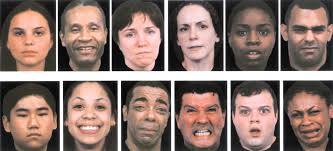Schizophrenia is a complex, chronic mental health disorder characterized by disruptions in thinking, perception, emotions, and behavior. Here’s an overview of its causes, signs, effects, and possible solutions.
1. Causes of Schizophrenia
The exact cause of schizophrenia is unknown, but it likely results from a combination of genetic, biological, and environmental factors:
1. Genetics – Family history increases risk.
2. Brain Chemistry Imbalance – Dysregulation in neurotransmitters like dopamine and glutamate.
3. Prenatal Exposure to Toxins – Exposure to viruses, malnutrition, or toxins in the womb.
4. Complications During Birth – Oxygen deprivation or trauma during delivery.
5. Childhood Trauma – Abuse, neglect, or significant stress.
6. Drug Use – Use of psychoactive drugs, particularly in adolescence.
7. Brain Structure Abnormalities – Enlarged ventricles or differences in brain structure.
8. Immune System Activation – Severe inflammation from autoimmune diseases or infections.
9. Psychosocial Stressors – Prolonged exposure to severe stress.
10. Living Environment – Urban upbringing associated with higher risk.
11. Hormonal Changes – Such as those occurring during puberty.
12. Viral Infections – Maternal exposure to certain viruses, like influenza, during pregnancy.
13. Exposure to Lead – Particularly in early childhood.
14. Inflammation in the Brain – Ongoing research links inflammation to schizophrenia.
15. Maternal Diabetes or Malnutrition – Poor maternal health can increase risk.
16. Paternal Age – Higher risk associated with older paternal age.
17. Season of Birth – Slightly higher risk for those born in winter or early spring.
18. Lack of Early Social Support – Can compound stress and impact mental health.
19. Physical Abuse – Early childhood abuse has been linked to a higher risk of psychosis.
20. Early Head Trauma – Injuries to the head or brain in childhood.
2. Signs of Schizophrenia
Symptoms generally appear in late adolescence or early adulthood and are classified into positive, negative, and cognitive symptoms:
1. Hallucinations – Hearing voices or seeing things that aren’t there.
2. Delusions – Strong beliefs that are false or not based in reality.
3. Disorganized Thinking – Incoherent thoughts or speech patterns.
4. Paranoia – Intense suspicion or fear of others.
5. Social Withdrawal – Lack of interest in social interactions.
6. Anhedonia – Inability to feel pleasure.
7. Affective Flattening – Reduced expression of emotions.
8. Alogia – Poverty of speech or difficulty in communicating.
9. Apathy – Lack of motivation to engage in activities.
10. Catatonia – Reduced movement or responsiveness; may hold rigid postures.
11. Difficulty with Focus and Attention – Trouble concentrating on tasks.
12. Memory Issues – Difficulty recalling recent events or following instructions.
13. Reduced Cognitive Abilities – Problems with problem-solving and planning.
14. Inappropriate Emotional Reactions – Laughing or crying at inappropriate times.
15. Decreased Personal Hygiene – Neglect of personal care.
16. Poor Decision-Making – Impulsivity or irrational decision-making.
17. Disorganized Behavior – Unusual or erratic actions, possibly unpredictable.
18. Unclear Sense of Reality – Blurred distinction between fantasy and reality.
19. Mood Swings – Episodes of anger, sadness, or anxiety.
20. Thought Blocking – Sudden interruptions in thought or speech.
3. Effects of Schizophrenia
Schizophrenia has a significant impact on the person’s life and can affect multiple areas:
1. Social Isolation – Difficulty maintaining relationships, leading to loneliness.
2. Employment Challenges – Difficulty holding a job due to cognitive and social impairments.
3. Poor Physical Health – Increased risk of conditions like obesity, diabetes, and heart disease.
4. Homelessness – Higher risk due to difficulty maintaining stable housing.
5. Financial Strain – Often results in financial instability and dependency on assistance.
6. Legal Issues – Higher risk of encounters with law enforcement due to erratic behavior.
7. Substance Abuse – Increased likelihood of self-medicating with drugs or alcohol.
8. Suicidal Behavior – Elevated risk of suicide, especially in early stages.
9. Impact on Family – Emotional, financial, and physical burden on caregivers and family.
10. Poor Quality of Life – Ongoing symptoms that limit personal and professional growth.
4. Solutions and Management for Schizophrenia
Though there is no cure for schizophrenia, treatments can help manage symptoms and improve quality of life:
1. Antipsychotic Medications – Medications like risperidone, olanzapine, or clozapine help control symptoms.
2. Cognitive Behavioral Therapy (CBT) – Helps patients manage symptoms like hallucinations and delusions.
3. Social Skills Training – Improves social interactions and independence.
4. Family Therapy – Involves family members to provide support and understand the illness.
5. Psychoeducation – Educates patients and families on managing schizophrenia.
6. Supported Employment Programs – Assistance with job skills and finding employment.
7. Case Management – Support in coordinating health services and social assistance.
8. Assertive Community Treatment (ACT) – Intensive support services provided by a multidisciplinary team.
9. Mindfulness-Based Therapy – Teaches coping skills for managing stress and symptoms.
10. Exercise and Physical Activity – Physical activity can improve mental health and reduce stress.
11. Substance Abuse Counseling – Helps patients avoid or recover from substance abuse.
12. Dietary Interventions – Healthy diet can positively influence mental health.
13. Routine and Structure – Establishing a daily routine helps with managing symptoms.
14. Housing Support Services – Assistance in finding stable, supportive housing.
15. Crisis Intervention Services – Immediate help during acute episodes.
16. Peer Support Groups – Connection with others facing similar challenges.
17. Mind-Body Practices – Activities like yoga or meditation to reduce anxiety.
18. Self-Care Strategies – Regular sleep, balanced diet, and managing stress.
19. Teletherapy Options – Access to therapy and counseling via digital platforms.
20. Early Detection Programs – Early intervention can improve outcomes for those at high risk.
Managing schizophrenia requires a combination of medication, therapy, and community support. With comprehensive care, individuals can lead a more stable and fulfilling life, despite the challenges posed by the disorder.



No comments yet
Be the first to share your thoughts!